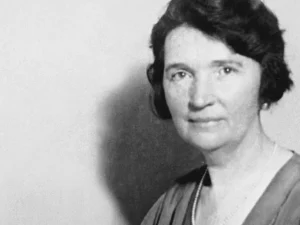Welcome, ladies, to a journey of self-discovery and empowerment! In this comprehensive guide, we will unravel the complexities of PCOD problem treatment, providing essential insights and empowering knowledge for women seeking to manage this condition. Together, we will find ways to embrace life to the fullest despite PCOD’s challenges.
PCOD Problem Demystified

What on Earth is PCOD?
PCOD, or Polycystic Ovarian Disorder, is a hormonal disorder that affects millions of women worldwide. It’s like having a wild dance party inside your body, where hormones get tangled up and misbehave, causing all sorts of trouble. The ovaries, instead of releasing eggs regularly, produce small cysts, leading to irregular menstrual cycles and a host of pesky symptoms that can make life feel like a rollercoaster ride.
The root cause of PCOD is like solving a puzzle with missing pieces, but fret not, for there’s a way to put the pieces together and regain control. Genetics play a role in PCOD, but it’s not the only culprit. Insulin resistance, a condition where your cells don’t respond well to insulin’s signals, also plays a part in disrupting hormonal balance. So, it’s like a tug-of-war between hormones and insulin, with your body trying to find equilibrium.
Empowering Yourself with PCOD Problem Treatment
Now that we have a better understanding of PCOD, let’s explore the treatment options available to navigate through its challenges.
Conventional Approaches: The Pill Puzzle
When it comes to PCOD, doctors often prescribe oral contraceptives, also known as “The Pill,” to regulate menstrual cycles and manage hormonal imbalances. The Pill works by providing a consistent level of hormones to keep your body in check. For some women, it’s like having a lifeline, bringing a sense of order to the hormonal chaos.
However, The Pill isn’t for everyone, and it can be a bit of a double-edged sword. While it may help regulate your cycles, it can also come with some side effects. Picture this: you’re on a tightrope, hoping for the best, but you’re also fearing mood swings, weight fluctuations, and potential impacts on your emotional well-being.
Holistic Alternatives: Embracing Natural Harmony
If The Pill isn’t your cup of tea, fret not, for there’s a world of holistic alternatives waiting to be explored. Holistic treatments focus on addressing the root causes of PCOD, rather than just managing its symptoms. It’s like finding a peaceful oasis amidst a bustling city, offering serenity and balance.
Nutrition: Food is not just fuel; it can also be medicine. A balanced diet rich in whole grains, fruits, vegetables, and lean proteins can help maintain hormonal balance and manage insulin resistance. It’s like nourishing your body from the inside out, nurturing the very core of your well-being.
Exercise: Regular physical activity can work wonders for PCOD. It helps improve insulin sensitivity and promotes weight management. It’s like having a dance party with your hormones, keeping them in sync and grooving to the same beat.
Stress Management: Stress can wreak havoc on your hormones. Exploring relaxation techniques such as yoga, meditation, and deep breathing can be like a soothing balm for your soul, allowing your body to find its equilibrium.
Herbal Remedies: Some herbs, like cinnamon and fenugreek, have shown promise in helping manage insulin resistance. It’s like Mother Nature offering her hand to guide you on your healing journey.
Mind-Body Connection: Nurturing Your Soul
PCOD problem treatment extends beyond the physical realm; it delves into the mind-body connection. It’s like finding the missing piece of the puzzle that brings harmony to your being.
Mindfulness Practices: Mindfulness is all about being present in the moment and acknowledging your feelings without judgment. It’s like having a heart-to-heart conversation with yourself, making peace with your emotions, and learning to accept yourself unconditionally.
Yoga: Yoga is not just about contorting your body into impressive poses; it’s a way to connect with your inner self. It’s like a dance between your body, mind, and soul, creating a symphony of balance and serenity.
Meditation: Meditation is like pressing the reset button for your mind. It allows you to quiet the noise and find tranquility within. Picture yourself in a calm sea of thoughts, where the waves of stress gently subside.
FAQs: Unraveling Common Questions
As we journey through the labyrinth of PCOD problem treatment, let’s shed light on some common queries.
1. Can PCOD be cured completely?
While there is no definitive cure for PCOD, it can be effectively managed and symptoms can be alleviated through a combination of treatments. It’s like learning to dance in the rain – embracing life despite the challenges.
2. Will PCOD hinder my chances of getting pregnant?
PCOD can indeed impact fertility, but it doesn’t mean all hope is lost. With appropriate treatment and lifestyle adjustments, many women with PCOD successfully conceive and have healthy pregnancies. Picture this: you’re on a journey, and although there might be some bumps along the road, the destination is still within reach.
3. How can I manage PCOD-related weight gain?
Weight management with PCOD can be challenging, but with a balanced diet, regular exercise, and stress reduction, you can make progress towards achieving a healthy weight. It’s like learning to ride a bike – you may stumble at first, but with practice and determination, you’ll find your balance.
4. Can PCOD symptoms return after successful treatment?
While effective treatment can help manage PCOD symptoms, it’s essential to remain vigilant and continue adopting a healthy lifestyle. PCOD is a chronic condition, and in some cases, symptoms can resurface if you deviate from your treatment plan or revert to unhealthy habits.
Think of it like tending to a beautiful garden. Once you’ve nurtured it and watched it bloom, you must continue to water and care for it to maintain its beauty. Regular follow-ups with your healthcare provider and lifestyle adjustments can help prevent symptom relapses and ensure you remain on the path to optimal health.
5. Can PCOD affect my mental health, and how can I cope with it?
Absolutely! PCOD can indeed affect your mental health, as dealing with the challenges of this condition can be emotionally overwhelming. The hormonal imbalances, irregular menstrual cycles, fertility concerns, and physical symptoms can take a toll on your emotional well-being. It’s like navigating a stormy sea, with waves of uncertainty and frustration crashing against your mental shore.
The emotional impact of PCOD can manifest in various ways, such as:
Anxiety: The uncertainty surrounding PCOD and its effects on your body and fertility can lead to feelings of anxiety and worry. It’s like having a constant knot in your stomach, making it difficult to find peace of mind.
Depression: Coping with the challenges of PCOD may sometimes lead to feelings of sadness, hopelessness, and low energy. It’s like being stuck in a dark tunnel, struggling to find the light.
Body Image Issues: PCOD can cause weight fluctuations and changes in physical appearance, which might affect your body image and self-esteem. It’s like looking in the mirror and not recognizing the person staring back at you.
Frustration and Irritability: Dealing with the ups and downs of PCOD can be frustrating, leading to irritability and mood swings. It’s like having a storm of emotions brewing inside, threatening to overflow.
To cope with the emotional impact of PCOD, consider the following strategies:
Seek Emotional Support: Don’t hesitate to reach out to friends, family, or support groups who understand what you’re going through. Sometimes, sharing your journey with others who’ve experienced similar challenges can be like finding a safe harbor in the storm.
Professional Counseling: Speaking with a qualified mental health professional can be incredibly beneficial. They can provide valuable coping strategies, offer a fresh perspective, and help you navigate the emotional complexities of living with PCOD. It’s like having a trusted guide to help you chart a course through uncharted waters.
Practice Self-Compassion: Be kind to yourself and acknowledge that living with PCOD can be challenging. Allow yourself to feel emotions without judgment and know that it’s okay to have both good and bad days. It’s like offering a warm embrace to yourself, reminding yourself that you are strong and resilient.
Mindful Awareness: Engage in mindfulness practices to stay present in the moment. By focusing on the here and now, you can reduce anxiety about the past or the future. It’s like finding a calm harbor amidst the storm, where you can find solace and strength.
Hobbies and Activities: Engage in activities that bring you joy and help you relax. Whether it’s painting, dancing, reading, or spending time in nature, these moments of respite can be like a breath of fresh air for your soul.
Remember, taking care of your mental health is just as important as managing your physical well-being. Don’t hesitate to seek help if you find yourself struggling emotionally. With the right support and coping mechanisms, you can weather the storm and emerge stronger than ever. Embracing your emotional well-being is a vital part of your journey towards empowerment and living life to the fullest amidst PCOD.
Embracing Life Amidst PCOD
PCOD is a journey, and with the right tools and support, you can live life to the fullest despite the challenges it poses.
It’s time to embrace your uniqueness, acknowledge your strength, and take charge of your well-being. The PCOD problem treatment landscape is vast, offering choices beyond conventional methods. Explore, experiment, and empower yourself with the knowledge that you hold the reins to your life.








































